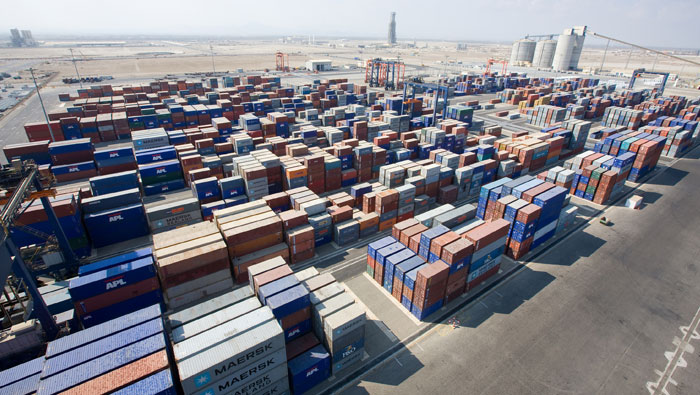
Muscat: Economists in Oman have predicted that the country’s Gross domestic product (GDP) is expected to grow by 2.5 per cent in 2019, adding to the festive cheer of National Day, thereby allowing for increased spending and saving levels among locals and expats in the Sultanate.
The rising value of oil and natural gas has risen significantly in the January-September period compared with the same period last year, resulting in a low fiscal deficit and a higher trade surplus from January to June, according to Dr CK Anchan, an investment advisor in the Sultanate.
"Oman has sufficient foreign assets to support its currency’s fixed exchange rates," he said.
"Economic growth is set to modestly recover over the medium term, with GDP expected to increase by 2.3 per cent in 2018 and 2.5 per cent in 2019; a boost in the GDP growth is projected to rebound to 2.9 per cent by 2020."
"The International Monetary Fund (IMF) forecast an increase in oilfield production from an estimated 970,000 barrels per day (bpd) this year to 1.06m bpd in 2023," he added.
Oman's financial trajectory is expected to continue its upward trend with growth, investment and diversification expected to accelerate and the country’s current situation remains strong, he explained, adding that the Sultanate's manufacturing sector grew by 17.8 per cent year-on-year in the first quarter of 2018, according to data issued by the National Centre for Statistics and Information (NCSI).
"Oman's acceleration in growth comes amid its efforts to broaden the manufacturing base and increase its contribution to GDP to 15 per cent by the end of the decade; a series of new investments look set to boost manufacturing output in the coming years," Anchan added.
Ramanuj Venkatesh, an economist with experience in both Oman and the United Arab Emirates, said that an increase in GDP for the Sultanate would enable people to spend more money in the future, thereby allowing for further growth in the economy.
“People unfortunately are quite uncertain about the job market, and were wondering if they would need to go back to their home countries,” he told the Times of Oman.
“This was further underlined by the decrease in oil prices, which did impact the economy, but the oil prices are now steadily increasing once again, and this has brought hope to people. They will therefore be more likely to spend and we can see signs of employment in the future, because Oman is pushing ahead with its Tanfeedh plans for economic diversification," he said.
“A lot of the revenue is being allocated to these programmes because the government is looking to diversify its economy so as to provide increased sources of income, as well as more jobs, and this is being helped by the recovering oil prices,” added Venkatesh.
“The oil prices are expected to recover by late 2018 and early 2019, so consumer confidence will increase, and therefore, spending will also increase. This bodes well for the GDP of Oman. Oman’s economy had gone through shaky periods, but the increase in GDP means that people will now be encouraged to loosen their pockets,” he said.
In addition, Ali Asghar Wajihi, owner of Bombay Sweets, one of the country’s biggest and oldest businesses, which has been around for more than 25 years, said that the country’s wise policies would ensure a positive outlook for 2019 and beyond.
“Oman is a wisely-run country and I am sure we will come out of this situation. On the part of the ministries, they have already begun opening up projects, so people should take this as a green signal,” he said.
“To be honest, there is a ray of hope visible, for the past three or four months, maybe because of the recovery in oil prices, so there are some signs of improvement,” he added.
"The budget deficit has been remarkably reduced riding on higher crude price realisation," Mubeen Khan, a Muscat based financial analyst said.
"Oil even in the US$70 range drives growth for Oman as it largely helps the nation's budget.
Looking toward other industries, Khan said, "Mining is the next oil for Oman and this sector has shown exponential growth in the last five years".
"Oman's industrialisation is key to future growth", he added.
"Oman's own industrial revolution is marked by the immense success of the Sultanate's industrial states and freezones".